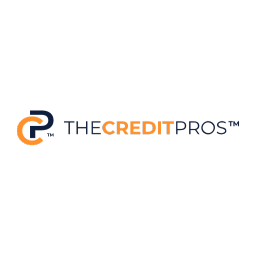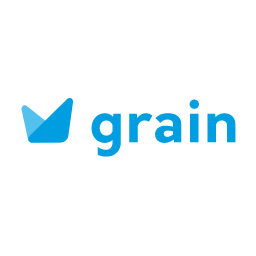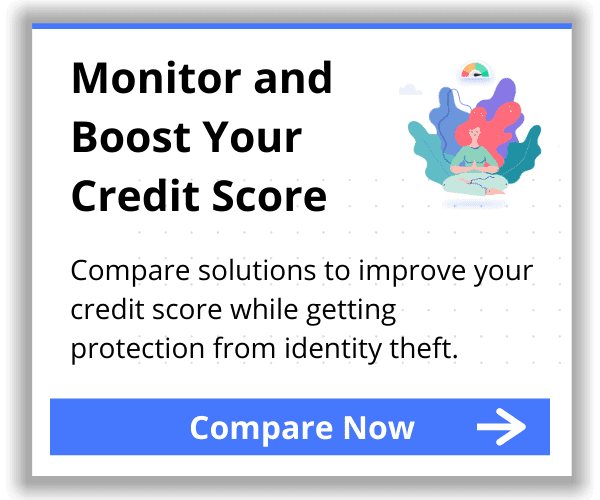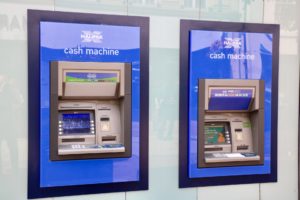Are you considering applying for a credit card soon? Depending on your credit rating, you may have several options available – some with more enticing perks than others. That said, your choices may also be limited if your score is on the lower end. If you’re right in the middle with a fair credit score, unsecured credit cards are accessible and will likely come with fewer incentives. The upside is using your card responsibly could improve your credit rating and position you for more attractive credit card offers in the future.
What are Unsecured Credit Cards?
As the name suggests, unsecured credit cards are debt products that do not require collateral to get approved and open an account. This means you won’t have to make a security deposit that’s equivalent to the credit limit like a secured credit card requires.
Instead, you’ll get a preset credit limit that operates like a revolving line of credit. Each month, cardholders must make at least the minimum monthly payment that includes a small portion of the balance and interest to keep the card in good standing unless the card is paid in full before the statement date.
The interest rate you’ll receive varies by credit profile. Generally, unsecured credit cards with the lowest interest rates and fees are reserved for applicants with stellar credit, as the risk of default is substantially lower. But if your credit score is fair, expect a higher annual percentage rate (APR) to minimize the level of risk you pose to the credit card issuer.
What Do Credit Card Issuers Consider Fair Credit?
It depends on the credit scoring model the credit card issuer uses to pull credit scores. FICO Score is the most prevalent as it’s used by 90 percent of lenders and creditors to make lending decisions. VantageScore isn’t quite as prevalent, but it’s starting to be more widely utilized.
FICO Score, which ranges from 300 to 850, categorizes credit scores as follows:
- 300 to 579: Poor FICO Score
- 580 to 669: Fair FICO Score
- 679 to 739: Good FICO Score
- 740 to 799: Very Good FICO Score
- 800 to 850: Exceptional FICO Score
Your FICO scores are calculated using the information from your credit reports from the three major credit bureaus – Experian, TransUnion and Equifax. Below is a breakdown of the scoring formula:
- Payment history: 35 percent of your FICO Score
- Amounts owed: 30 percent of your FICO Score
- Length of credit history: 15 percent of your FICO Score
- Credit mix: 10 percent of your FICO Score
- New credit: 10 percent of your FICO Score
VantageScore has the same score ranges but slightly different ratings:
- 300 to 499: Very Poor VantageScore
- 500 to 600: Poor VantageScore
- 601 to 660: Fair VantageScore
- 661 to 780: Good VantageScore
- 781 to 850: Excellent VantageScore
This credit-scoring model also pulls data from your credit reports to compute your score. Here’s a breakdown of how the information present influences your VantageScore rating:
- Payment history: Most influential to your VantageScore
- Credit type, credit age and percent of the credit limit in use: Highly influential to your VantageScore
- Total debt balances: Moderately influential to your VantageScore
- Recent credit inquiries, behavior and available credit: Less influential to your VantageScore
So, a FICO Score between 580 and 669 is considered “fair.” This figure is slightly higher for VantageScore – between 601 and 660.
What Credit Score Do You Typically Need for an Unsecured Credit Card?
To qualify for an unsecured credit card with fair credit, you’ll need a FICO score between 580 and 669. If the credit card issuer uses VantageScores, it should be anywhere from 601 to 660. Be mindful that some credit card companies use variations of these credit-scoring models to come up with your credit score. Others also have their own in-house rating systems to gauge if your credit score is high enough to qualify for a credit card or if they’ll consider other compensating factors and approve you for a card with a lower credit score.
Can You Get Unsecured Credit Cards with Fair Credit?
As mentioned above, it’s possible to get approved for an unsecured credit card with fair credit. However, you’ll likely find that fewer offers are available from credit card issuers, and the ones that do often come with hefty APRs, annual fees and late payment penalties. There’s also a chance you’ll be charged a monthly maintenance fee with some credit card companies.
Choosing Unsecured Credit Cards for Fair Credit
Approval Requirements
Do you meet the eligibility criteria? The credit card issuer may not disclose what they’re looking for in applicants, but most look at your credit score, credit history, current debt load and income. Still, it’s possible to find out if you’re a good fit by using its online pre-qualification tool (if available) to gauge your approval odds without impacting your credit score as it only results in a soft credit inquiry. That way, you’ll know if you should move forward with a formal credit card application or explore other options.
APRs
What’s the APR on the unsecured credit cards you’re considering? Unfortunately, it’s not uncommon for the rate to be 10 percent or more than you’ll find on cards designed for consumers with good or excellent credit. Still, the card you select should have one of the lower interest rates to minimize the amount you’ll pay in interest if you carry a balance.
To illustrate the significance of credit card APR, assume you have a credit card balance of $3,000 with a $100 minimum monthly payment. If your APR is 19.99 percent and you only pay the minimum each month, you’ll spend $1,192 in interest over 42 months to pay the balance in full (assuming you don’t make any additional charges). But if you’re able to improve your credit score from a “fair” to “good” or “excellent” and secure an interest rate of 12.99 percent, the total interest paid drops to $647 with minimum monthly payments over 37 months.
That said, you can avoid making interest payments by paying your outstanding balance off before each statement date.
Fees and Penalties
Do the credit cards you’re considering assess fees and penalties? Are they hefty or comparable to other options that could be a good fit for you? Some fees and penalties to look out for include the following:
- Annual fee: These are an added cost that you’ll see with many credit cards that cater to individuals with fair credit scores. It’s also common with credit cards offering cash back or travel rewards. The amount you’ll pay depends on the credit card company and incentives cardholders receive and is typically added to your bill once a year. However, there are a few credit cards that divide the annual fee by 12 and add it to your bill on a monthly basis. If you’re unable to find an unsecured credit card that doesn’t come with an annual fee, be sure the amount you’ll pay makes sense for the benefits the card offers.
- Balance transfer fee: If you’re looking to consolidate high-interest debt, you may be considering a balance transfer card. But in case you aren’t familiar, they allow you to transfer your balances and enjoy an interest-free promotional period – usually from 12 to 21 months. The idea is to pay off your balances or pay them down substantially during this period to save a bundle in interest. Still, these cards come at a cost in the form of a balance transfer fee between three and five percent of the debt you transfer. So, if you transfer $6,000 in high-interest credit card debt to a balance transfer credit card, you’ll pay a fee between $180 and $300. You can minimize your costs, though, by selecting a balance transfer credit card with a fee that’s on the lower end – preferably 3 percent – if you have several options to choose from.
- Card replacement fee: This charge is assessed by some credit card issuers if your card is stolen, lost or misplaced. It’s not very common, though, as most will replace your credit card free of charge. Otherwise, expect to pay up to $20 to request a new one.
- Cash advance fee: When you’re approved for an unsecured credit card and receive it in the mail, the credit card issuer may also send a personal identification number (PIN) that can be used to pull cash from your cash advance limit. It’s often lower than your total credit limit, and you’ll pay a fee to withdraw funds. Cash advances are also subject to a higher APR, and there’s no grace period like you’ll find with regular purchases. Instead, interest starts accruing the day you pull funds from the ATM. Convenience checks sent from your credit card issuer are also subject to a cash advance fee if you cash them to access funds from your available credit.
- Foreign transaction fee: If you’re planning to travel abroad, you could be subject to a foreign transaction fee each time you use your credit card. In most instances, it’s 3 percent of each transaction, and you’ll notice the added fee on your credit card statement. Although this amount may seem nominal, it can add up quickly if you make several purchases. For example, $4,500 in foreign transactions means you’ll pay $135 in added fees, so it’s worthwhile to do some legwork to find a card that doesn’t charge this fee if you travel internationally often. Quick note: Some credit card issuers also assess foreign transaction fees on purchases made outside of the U.S.
- Late payment fee: Expect to incur a late payment fee on your credit card if your payment is received by the cutoff time on the due date. The amount varies by the credit card issuer, but most charge between $25 and $35 per occurrence. You can avoid late payment fees by scheduling your monthly payment in advance or using your financial institution’s bill-payment service. Or you can request a waiver from the credit card company if it isn’t a repeat occurrence.
- Over-limit fee: You may incur an over-limit fee if you make a purchase that causes your balance to exceed your credit limit. But you can avoid it by monitoring your transaction activity often, especially if you have minimum credit available.
- Returned payment fee: If your credit card payment is returned by your financial institution due to insufficient funds, expect a fee of up to $41. The returned payment fee can easily be avoided by ensuring you have enough cash in your checking account before scheduling the payment.
Ideally, you want a card with minimal added costs to keep more of your hard-earned money in your pocket.
Credit Limit
If your credit score is fair, it’s best to get an unsecured credit card with a relatively low spending limit. You’ll find it much easier to qualify and avoid burying yourself into a mountain of debt that’s difficult to dig out of. Remember, the goal is to start building up your credit health, and getting a card with a lower credit limit makes it easier to remit timely payments and keep your credit utilization low – both of which are instrumental to improving your credit score.
Perks and Rewards
You won’t find tons of credit cards with fair credit, offering perks and rewards. For those that do, you can expect to pay an annual fee to take advantage of the incentives. But as mentioned above, the benefits should outweigh the cost of the annual fee to make applying for a credit card a sensible decision.
Easy Upgrade
Some credit card issuers offer multiple cards to choose from for consumers with varying credit ratings. If you’re looking to start with an unsecured credit card and upgrade to another option with more competitive terms and incentives, consider one of these companies, as it may be an easier transition when you’re ready to apply for other cards. There’s also a chance you’ll be offered a new credit card with more benefits based on your existing relationship with the card issuer.
Credit Building Feature
It’s vital that the credit card issuer report payment activity to the major credit bureaus – Experian, TransUnion and Equifax. Otherwise, making timely payments and managing the card responsibly won’t help boost your credit score. Be mindful that not all credit card companies report to all three credit bureaus, though.
Frequently Asked Questions (FAQs)
Here are some frequently asked questions regarding unsecured credit cards for fair credit.
The most attractive benefit these cards offer is the ability to access a credit line without having to make a security deposit since they’re unsecured. Unfortunately, this also means you’ll likely get approved for a higher credit limit than you would with a secured credit card unless you’re willing to make a hefty security deposit. Plus, responsibly managing the card will give your payment history a boost and possibly raise your credit score. Despite the advantages, there are some downsides to consider – mainly with the costs that come with these cards. Statistics show that fair credit borrowers are more likely to default on credit card payments than individuals with stronger credit scores. That said, credit card companies want to protect themselves from financial losses and will often charge steeper APRs to minimize risk. You may also find that the cards you’re considering come with monthly maintenance fees, and annual fees, also which aren’t uncommon.
If you meet the credit card company’s eligibility criteria, you shouldn’t have a problem getting approved for an unsecured credit card with fair credit. However, be mindful that the cards that are advertised as ideal options for credit-building generally have the most flexible requirements and are worth considering if your credit score is on the lower end of the “fair” spectrum.
You may be eligible for a card that offers cashback rewards or points that can be redeemed for gift cards, cash or statement credits based on your purchase volume. But if you’re looking for an unsecured credit card that offers an introductory APR or generous travel incentives, you probably won’t have much luck until your credit score is higher.
No, you won’t find any credit card offers in this category that doesn’t require a hard credit check. If you’re worried about negatively impacting your credit score with credit card applications, consider getting pre-qualified first through the card issuer’s website. That way, you’ll know if you’re a potential match for the card you want or if you’d be better off applying elsewhere.
It’s a personal decision, but you should understand the key differences between the two to determine which option is best. Both types of credit cards serve the same purpose – making purchases in-store or online and improving your credit health (assuming the card is managed responsibly and account activity is reported to the credit bureaus). However, you’ll need a security deposit – typically equivalent to the credit limit – to get a secured credit card. The funds will be held by the credit card issuer and released to you when you close the card or if you’ve upgraded to an unsecured card. But if you fall behind on the credit card payments, the card will likely be closed, and the credit card company will collect what’s owed from the security deposit.
Before you apply, check your credit reports from the three credit reporting agencies – Experian, TransUnion and Equifax – to ensure they are free of errors that could be dragging your score down. If you notice inaccuracies, file disputes with the appropriate credit reporting agencies promptly to have them rectified. Next, shop around for unsecured credit cards for fair credit, and get pre-qualified for those that are most ideal for you to avoid unnecessary hard inquiries that are generated when you formally apply. Finally, read the fine print for your top choice and submit a formal credit card application. Upon approval, be sure to manage your card responsibly by keeping the utilization low and making timely monthly payments.











